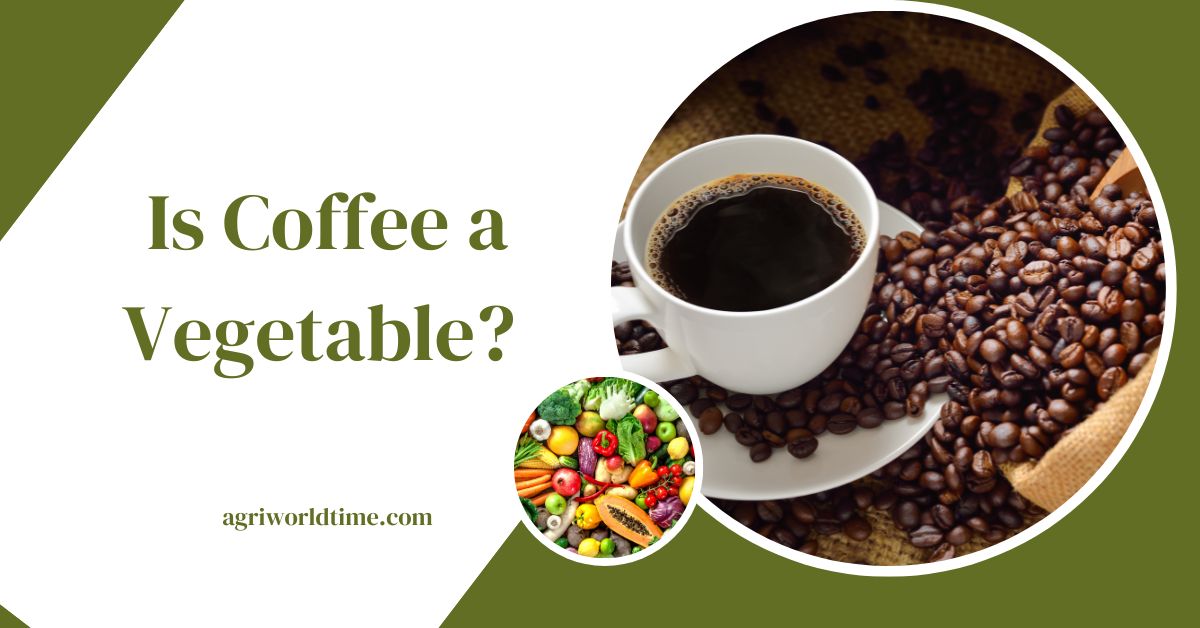In a world filled with debates about dietary choices and health trends, one question that occasionally surfaces is whether coffee can be considered a vegetable. While classifying coffee as a vegetable may seem intriguing or even absurd to some, it’s essential to delve into its science and understand the context. In this article, we’ll explore the various aspects of this peculiar question and unravel its truth.
The Coffee Plant: A Botanical Perspective
Coffee Plant Classification
We must begin with the coffee plant’s botanical classification to address the coffee-vegetable debate. Coffee beans, the primary ingredient in our favorite brew, are, in fact, the seeds of the Coffea plant. This plant belongs to the Rubiaceae family, making it a botanical cousin to well-known plants like gardenia and quinine.
The Life Cycle of Coffee Plants
Coffee plants are perennial evergreens, which means they don’t shed their leaves in the fall. This characteristic aligns more closely with trees than vegetables, as vegetables typically follow an annual life cycle.

Coffee Beans: The Culinary Aspect
The Harvesting Process
Coffee beans are harvested from the coffee plant’s cherries, which is a far cry from harvesting traditional vegetables like broccoli or carrots. The coffee cherries are picked by hand, and their seeds are extracted for processing.
Coffee Beans: A Unique “Vegetable”
While coffee beans come from a plant, their preparation and consumption differ vastly from traditional vegetables. Coffee beans are roasted, ground, and brewed to make our beloved beverage. Vegetables are typically consumed raw or after minimal processing.
Nutritional Value: Does Coffee Measure Up to Vegetables?
Nutritional Composition of Coffee
Coffee is renowned for its unique composition. It contains caffeine, antioxidants, and various compounds that can positively and negatively affect health. However, the differences are stark when we compare its nutritional profile to traditional vegetables like spinach or broccoli.
Coffee and Essential Nutrients
While coffee provides certain health benefits, it cannot replace the vital nutrients found in vegetables. For instance, coffee doesn’t offer essential vitamins and minerals such as vitamin C, vitamin K, or potassium, which are abundant in vegetables.
Coffee and Dietary Guidelines
The Role of Vegetables in a Healthy Diet
Vegetables are a fundamental component of a balanced diet, as dietary guidelines recommend. They provide fiber, vitamins, and minerals crucial for overall well-being.
Coffee as a Complement
On the other hand, coffee is often viewed as a complementary beverage rather than a dietary staple. While it can be a source of antioxidants, it should not replace vegetables in one’s diet.
The Global Coffee Market
According to Business Wire, the global coffee market was valued at USD 102.02 billion in 2020, and it is projected to reach a CAGR of 4.28% during the forecast period of 2021-2026. This data highlights the significant economic impact of coffee on a global scale.
The Bottom Line
After exploring the various facets of the coffee-vegetable debate, it’s clear that coffee cannot be considered a vegetable in the traditional sense. While it originates from a plant, coffee beans’ processing, preparation, and nutritional composition distinguish them significantly from vegetables. Vegetables offer many essential nutrients that coffee doesn’t provide.
So, as you savor your morning cup of coffee or indulge in an espresso, remember that while coffee is a delightful beverage with unique qualities, it shouldn’t replace the valuable place vegetables hold in a healthy diet.
FAQs
1. Is coffee a vegetable?
No, coffee cannot be classified as a vegetable. It originates from the coffee plant’s seeds. Still, coffee beans’ processing and nutritional composition make them distinct from traditional vegetables.
2. Can I replace vegetables with coffee in my diet?
No, replacing vegetables with coffee in your diet is not advisable. Vegetables offer essential vitamins, minerals, and fiber that coffee cannot provide.
3. What are the health benefits of coffee?
Coffee offers several health benefits, including improved alertness and antioxidant properties. However, it should be consumed in moderation and as a part of a balanced diet.
4. Are there any downsides to excessive coffee consumption?
Excessive coffee consumption can lead to insomnia, increased heart rate, and digestive problems. It’s crucial to consume coffee in moderation.
5. How can I incorporate both coffee and vegetables into my diet?
You can enjoy coffee and vegetables in your diet by balancing your meals. Consider having coffee as a beverage alongside various vegetables in your meals to ensure a well-rounded diet.
Now that we’ve shed light on the coffee-vegetable debate remember that while coffee is a delightful and stimulating beverage, it should always be complemented by a diverse and nutritious selection of vegetables in your daily meals.

